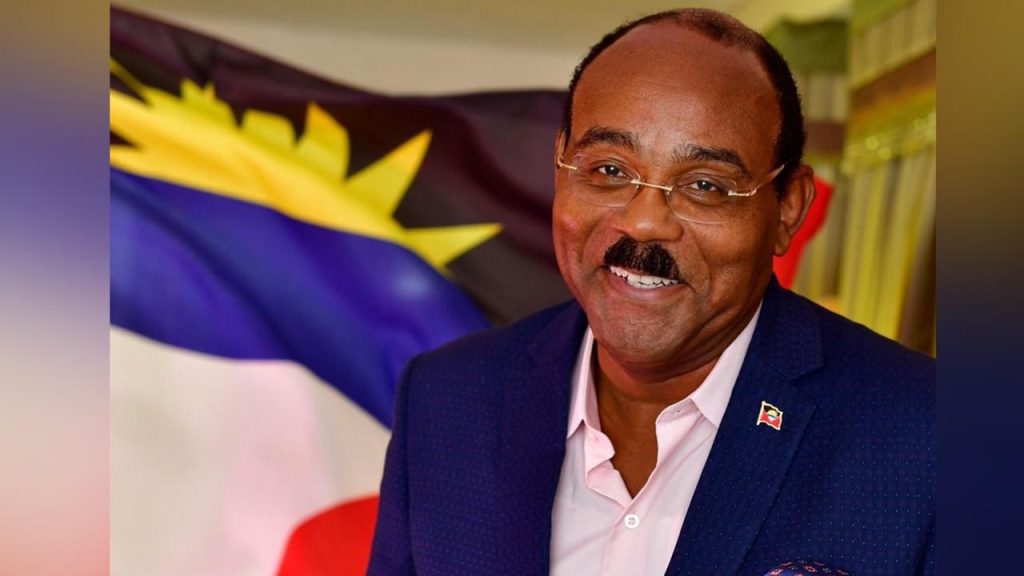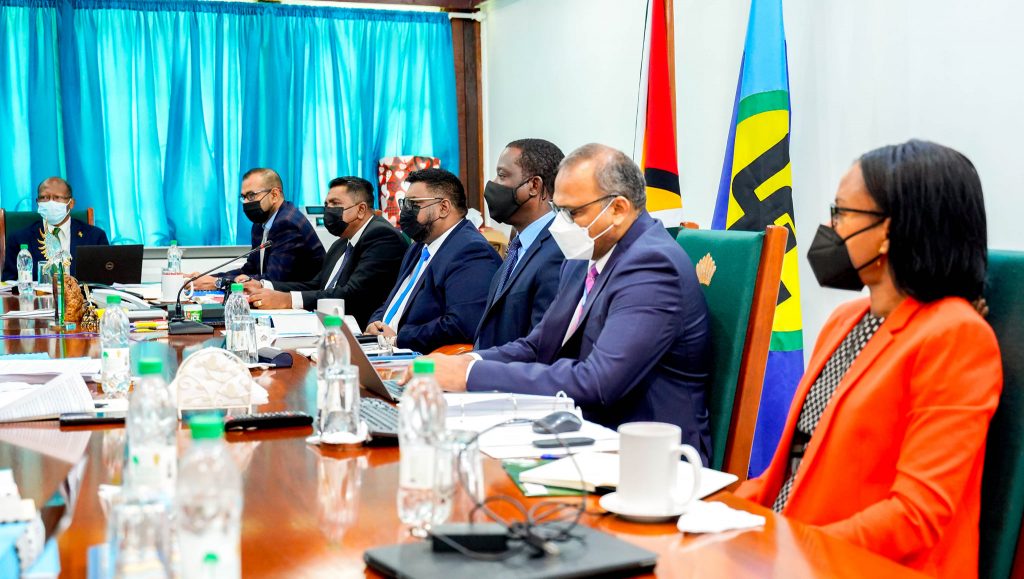
CARICOM Chair calls for ‘climate reparations’ amid volcanic eruptions, flooding, hurricane season
By Vishani Ragobeer
During the first six months of the year, Caribbean countries have grappled with the effects of a volcanic eruption, flooding and the annual hurricane season, in addition to the COVID-19 pandemic, and this has prompted the new Chairman of CARICOM, Gaston Browne to make a strong call for climate reparations.
Browne, the Prime Minister of Antigua and Barbuda, made this call on Monday during the opening ceremony of the 42nd Regular Meeting of the Heads of Government of the Caribbean Community (CARICOM).
This meeting, which will be held virtually on Monday and Tuesday, is expected to tackle several of the issues plaguing the Caribbean, including the region’s vulnerability to natural disasters, economic challenges and social issues.
And, on Monday, the Antiguan Prime Minister positioned the intersecting issues of climate change, natural disasters and the region’s vulnerability to these squarely on the agenda.
He reminded the Heads of Government and other participating officials that the eruption of the La Soufrière volcano in St. Vincent and the Grenadines, the massive flooding in Guyana and Suriname and the recent passing of Hurricane Elsa have all displaced thousands of people and destroyed infrastructure and agricultural production.
“These climatic events serve to underscore the vulnerabilities of the region,” he said firmly.
He also drew attention to the fact that like the rest of the world, the Caribbean is still trying to manage the effects of the COVID-19 pandemic and the inequitable distribution of life-saving vaccines. Yet, he lamented that the Caribbean is managing the health pandemic with an onslaught of natural disasters.

The disproportionate impact of climate change was highlighted throughout the month of June, during a three-week-long Caribbean climate symposium organised by the United States Agency for International Development/ Eastern and Southern Caribbean Mission (USAID/ESC).
At this symposium, numerous regional stakeholders in the areas of disaster preparedness, health, the economy, among others came together to dissect the impact of climate change on the region and how the region can build its resilience.
During the opening ceremony of that symposium, a Memorandum of Understanding (MoU) was signed between the USAID/ESC and three regional partners: the Caribbean Community Climate Change Centre, the Caribbean Institute for Meteorology and Hydrology, and the Caribbean Disaster Emergency Management Agency.
This MoU signifies the collaboration between the parties to build the region’s awareness, preparedness, and action steps to counter the impact of climate change.
On Monday, however, Prime Minister Browne emphasised, “The causes of the climate crisis have already been scientifically established and the time has come for those countries, irresponsible enough to continue their damaging emissions and practices, to be held accountable.”
Elaborating on this, he opined that “real progress” on the climate crisis will only be made when the “major polluters” are made legally liable for the damage they cause to the environment.
Moreover, he stated that the discretionary international assistance provided for climate damage is both “inadequate” and “inequitable” as countries attempt to build their climate resilience.
“This is a call for climate reparations that CARICOM must take up urgently and engage in vigorous diplomatic outreach to build international consensus on these issues,” the Prime Minister told the CARICOM Heads of Government.

The call for reparations, cognisant of the region’s vulnerability to climate change, has been part of CARICOM’s work for reparatory justice.
Earlier this year, Caribbean Historian and Director of the Centre for Reparation Research, at the University of the West Indies, Professor Verene Shepherd stated that the Caribbean’s vulnerability to the climate crisis is underpinned by its geographical location (based on where hurricanes and earthquakes occur), export-driven and tourism-dependent economies and social circumstances (lacking resources to build and sustain suitable social infrastructure).
“The Caribbean consists of people and communities most vulnerable to the ecological crisis we are currently encountering globally.
“Though we are least responsible, given our history, and least equipped given the global dynamic instituted since slavery, we must advocate for a reparatory approach to addressing this issues,” Professor Shepherd said during a panel discussion in March.





